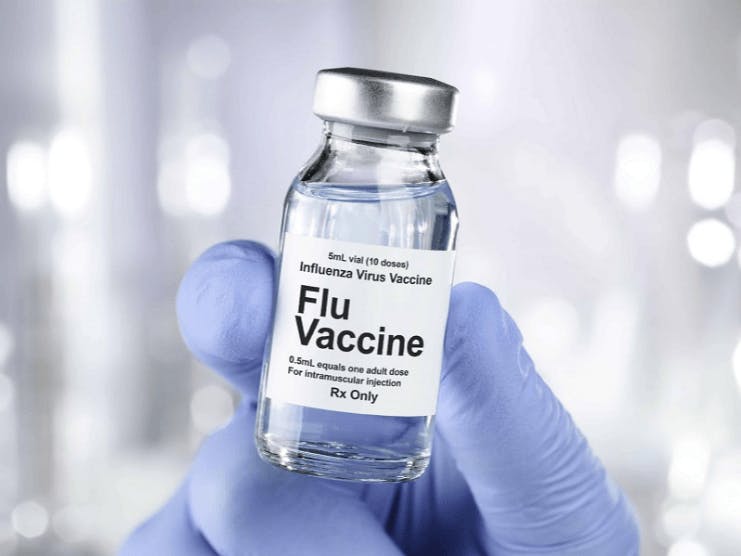
Who Needs the Flu Shot?
Like most health insurance providers, Medicare covers a variety of preventive services and screenings at no cost to you. One of these is the flu shot. This not only protects you from getting the flu but saves Medicare the much greater expense of treating thousands of patients who have the flu. In this post, we explain why you should get the flu shot every year and also touch on the pneumococcal vaccine that's also covered by Medicare Part B.
While the flu vaccine benefits everyone, some people are more susceptible to complications of the flu – some of them life-threatening. High-risk groups include:
- Adults age 65 and older
- Children under age 5
- Native Americans
- People who live in long-term care facilities
- Women who are pregnant or postpartum
Influenza is an extremely contagious infection that strikes the respiratory system. For that reason, certain conditions also increase your risk. These include:
- Chronic kidney disease
- Chronic lung disease
- Diabetes
- Heart disease
- Immuno-suppressant diseases and treatments, such as HIV and chemotherapy
The American Lung Association provides a complete list of risk factors for flu complications.
Why You Need to Get the Flu Shot Every Year
Most vaccinations against disease require a single shot, although some require a series of inoculations. However, even those require only two or three shots to protect you for the rest of your life.
The flu shot is different because the flu is different. The virus that causes influenza mutates and changes. These mutations are why the vaccine that protected you against last year's flu strain probably won't work against this year's.
Although the CDC recommends getting the flu shot before October 31, the FDA assures us it's not too late to get vaccinated. The disease peaks in December and February but lingers through May in many areas of the U.S.
Common Flu Symptoms
You may begin feeling some of these symptoms early, before feeling truly ill. This is particularly true of fatigue and just feeling run down.
- Achy feeling in your muscles and joints
- Chills
- Congestion and runny nose
- Dry cough
- Fatigue
- Headache
- Sore throat
- Sudden, high fever
A less common symptom among adults is nausea, vomiting, and diarrhea.
Recovery typically takes a few weeks, but you may continue to feel run down and just tired weeks later, particularly if you're in one of the high-risk groups.
Common Flu Complications
The most common flu complications are sinus infection and pneumonia, particularly for those over 65 and under 5.
Additional serious flu complications include:
- An infected respiratory tract that causes sepsis
- Chronic conditions getting worse, particularly asthma and heart disease
- Inflamed muscle tissue (myositis or rhabdomyolysis)
- Inflammation of the brain (encephalitis)
- Inflammation of the heart (myocarditis)
- Multi-organ failure
Again, these complications are much more common for those over 65. That's why getting the flu shot is so important.
When to Go to the Emergency Room
The following symptoms are a sign that it's time to go to the hospital.
- Difficulty breathing and shortness of breath
- Fever returning or cough getting worse AFTER symptoms have improved
- Mental confusion
- Pain and/or discomfort in the abdomen or chest
- Severe vomiting
- Sudden onset dizziness
Children's emergency symptoms are slightly different. They include:
- Bluish skin color
- Crying without producing tears
- Not drinking fluids
- Not wanting to be held
- Rash
Children may also avoid interacting with others. Anyone exhibiting any of these symptoms should go to the hospital immediately.
How to Prevent the Flu
Even if you're vaccinated, you can still spread influenza germs. The following healthy habits help protect you and your family, friends, and coworkers.
- Wash your hands often throughout the flu season, using warm soap and water. Also, rub them together for 30 seconds, including between the fingers, before you rinse.
- Keep your hands away from your face as much as possible. Touching infected surfaces – doorknobs, elevator buttons, etc. – is one of the most common ways people catch the flu.
- If you get sick, stay home. If someone you know is sick, avoid getting too close to them.
- Cover your nose and mouth with a tissue when you cough or sneeze. Alternatively, cover your mouth with your elbow, not your bare hand.
Always remember that hand contact is the most common means of spreading the flu virus.
The Flu and Pneumonia
Pneumonia is one of the most common complications with flu, particularly for seniors. The pneumococcal vaccines protects you against a whopping 36 pneumonia strains. Medicare covers these shots if you get them in the order recommended by the CDC.
First get the pneumococcal conjugate vaccine, aka PCV13, which guards against 13 different strains. After 12 months, you can get the pneumococcal polysaccharide vaccine, PPSV23. This protects you against 23 different pneumococcal bacteria strains.
Again, Medicare only covers the second shot if at least 12 months pass between it and the first. You may get both the flu and pneumonia inoculations at the same time.
Before getting the pneumococcal shots, tell your doctor whether you had any adverse reactions after previous vaccinations.
The Flu Shot and Your Medicare Coverage
Medicare Part B covers both the flu and pneumococcal vaccinations with no out-of-pocket costs to you (assuming your provider accepts assignment). The reason is simple: It's more cost-effective than treating you for the disease itself. Luckily, what's good for Medicare is also good for you.
Are you shopping for a new Medicare Advantage or Part D plan? Our Find a Plan tool makes it easy. Just enter your location, projected start date, and hit Continue to start comparing plan options in your area.



